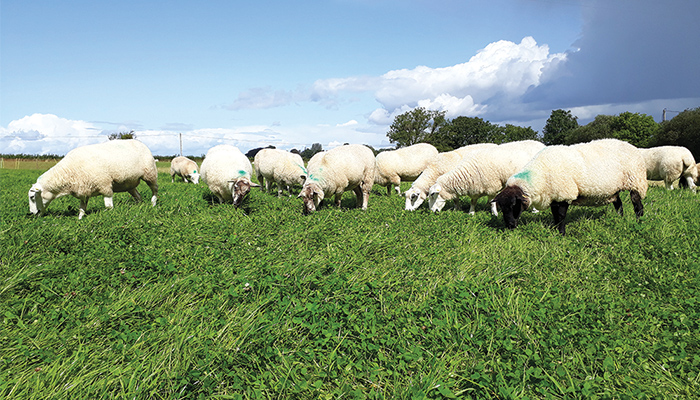28 August 2024
DAFM urges vigilance on Bluetongue

Following confirmation of Bluetongue virus serotype 3 (BTV-3) in a sheep in South Norfolk, England on August 26 2024, the Department of Agriculture, Food and the Marine (DAFM) has urged Irish livestock keepers to be vigilant of the virus.
Although Ireland is currently Bluetongue virus free, DAFM warns that the spread of disease to new regions of Europe and Great Britain increases infection pressure and risk of bluetongue transmission in Ireland. The Norfolk case is the first confirmed incidence of the disease in England during the 2024 vector season, while cases of BTV-3 have been confirmed in the Netherlands, Belgium, Germany, France, Luxembourg and Denmark.
A statement released by the DAFM’s National Disease Control Centred read: “Bluetongue does not affect human health or food safety. However, if bluetongue entered Ireland, it would have a significant impact on animal welfare and trade implications for live animals and germinal products (semen, embryos).”
Given the potential threat, DAFM has reminded livestock importers and farmers that the virus could spread to Ireland through import of infected animals, infected foetuses, germinal products, or wind dispersal of infected midges from infected areas.
With the statement highlighting: “Due to the ongoing dynamic situation with BTV-3 and the possibility of rapid disease spread, importers of livestock from mainland Europe must be aware of risks to their business.
“If they purchase livestock in a European country, there is a real risk that by the time they attempt to ship the animals to Ireland, that area may be affected by bluetongue and the animals may not then meet the certification requirements for entry to Ireland.”
As Bluetongue virus is a notifiable disease, DAFM has urged livestock keepers, veterinary practitioners and other relevant stakeholders to remain vigilant as current temperatures allow increased midge activity and Bluetongue transmission risk. Additionally, any suspicion of the disease must be reported to the local Regional Veterinary Office (RVO) without delay.
The update also presented some key information on the clinical symptoms of Bluetongue virus:
- Sheep are more likely to show obvious and more severe clinical signs of bluetongue than cattle if they become infected, and mortality rates can reach 30- 70%. Some animals may not show any clinical signs however, and these animals can pose a risk for spreading the disease to new areas or countries.
- Bluetongue virus is spread by infected biting midges (Culicoides species) which are present in Ireland and are generally most active between April and November. Activity levels are dependent on average temperatures, so mild weather conditions may see midge activity persisting for longer.
- The incubation period is approximately two weeks.
- Once the virus enters the midge population, eradication becomes very difficult requiring very high vaccination uptake levels maintained over a period of several years.
- A wide range of clinical signs are associated with Bluetongue, such as: fever; inappetence (loss or lack of appetite); drop in milk yield; reddening of the mucus membranes; sores on the nose, gum and dental pads; swelling of the face, lips and tongue (i.e. “Bluetongue”); breathing difficulties if the tongue swells; drooling; discharge from the eyes and/or nose; lameness; abortion or deformities in offspring/foetus; in severe cases, death can result.
Further information on Bluetongue is available on the DAFM website.
